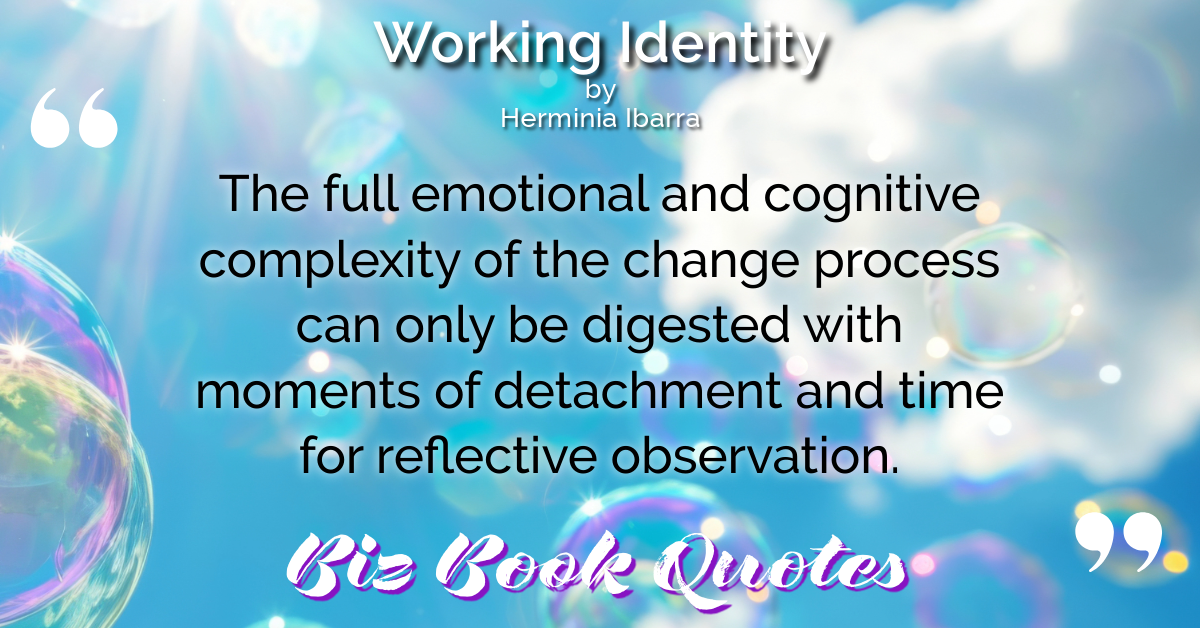 |
The full emotional and cognitive complexity of the change process can only be digested with moments of detachment and time for reflective observation.
|
148 |
 |
It is hard for people to achieve the objectivity they need to question and change their daily routines while they are still actively immersed in them.
|
151 |
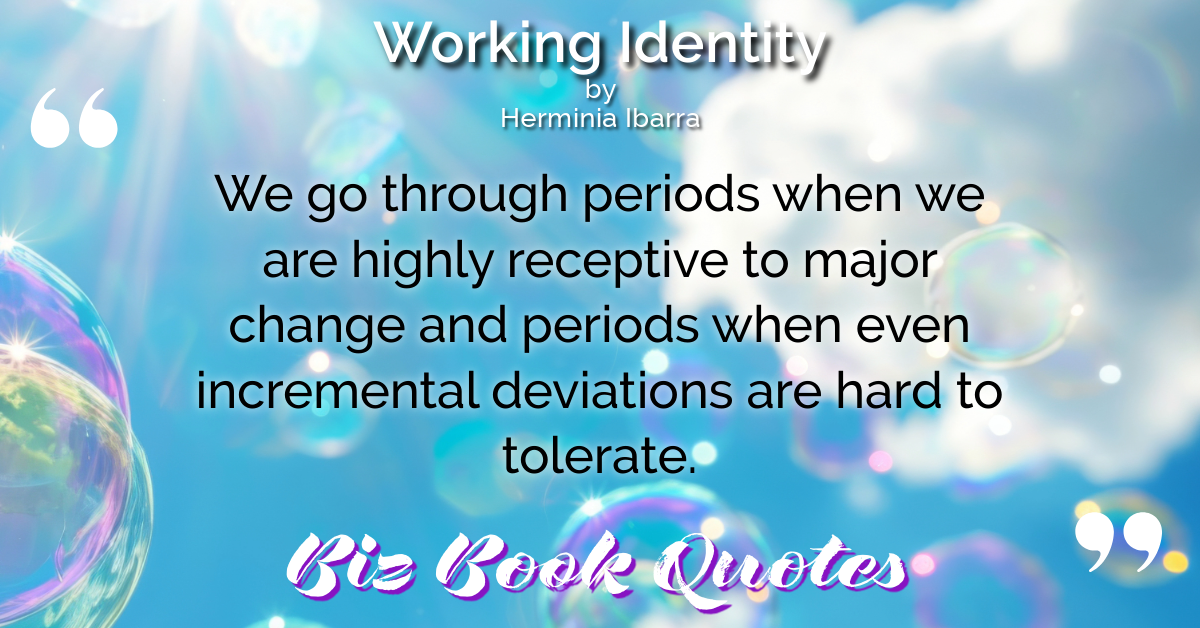 |
We go through periods when we are highly receptive to major change and periods when even incremental deviations are hard to tolerate.
|
155 |
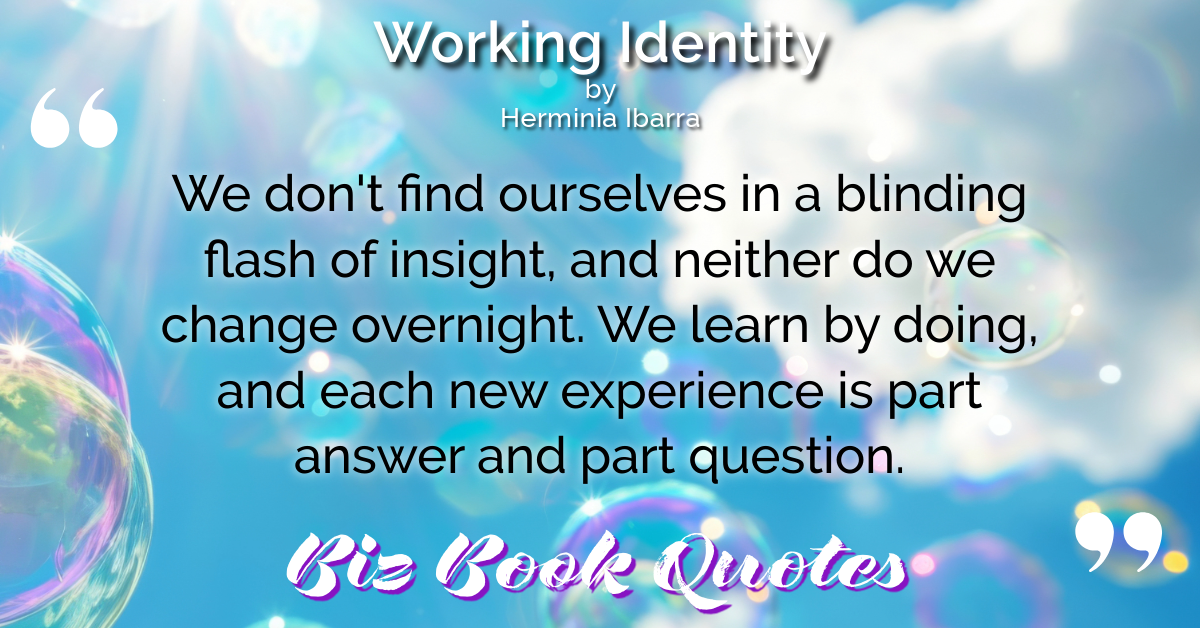 |
We don’t find ourselves in a blinding flash of insight, and neither do we change overnight. We learn by doing, and each new experience is part answer and part question.
|
161 |
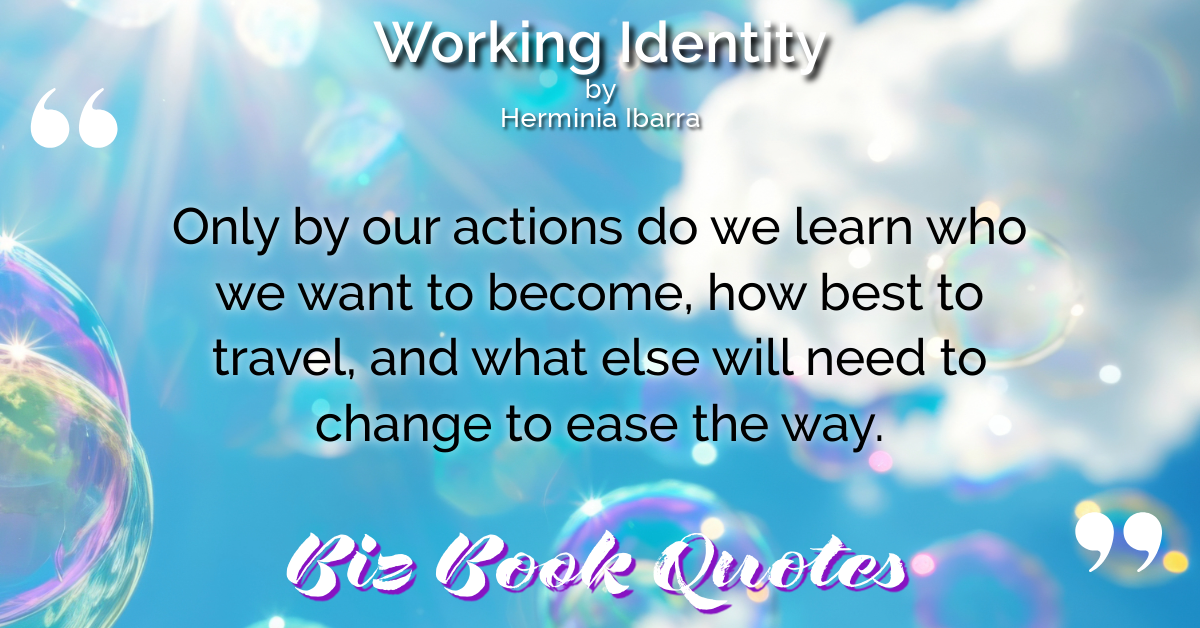 |
Only by our actions do we learn who we want to become, how best to travel, and what else will need to change to ease the way.
|
163 |
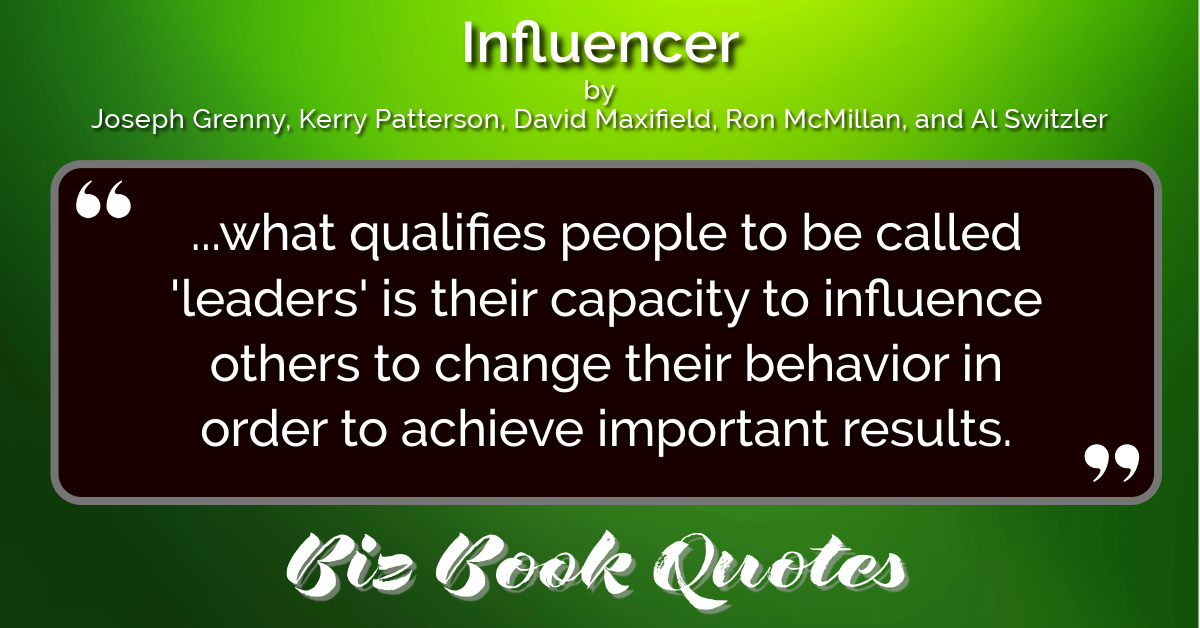 |
…what qualifies people to be called ‘leaders’ is their capacity to influence others to change their behavior in order to achieve important results.
|
006 |
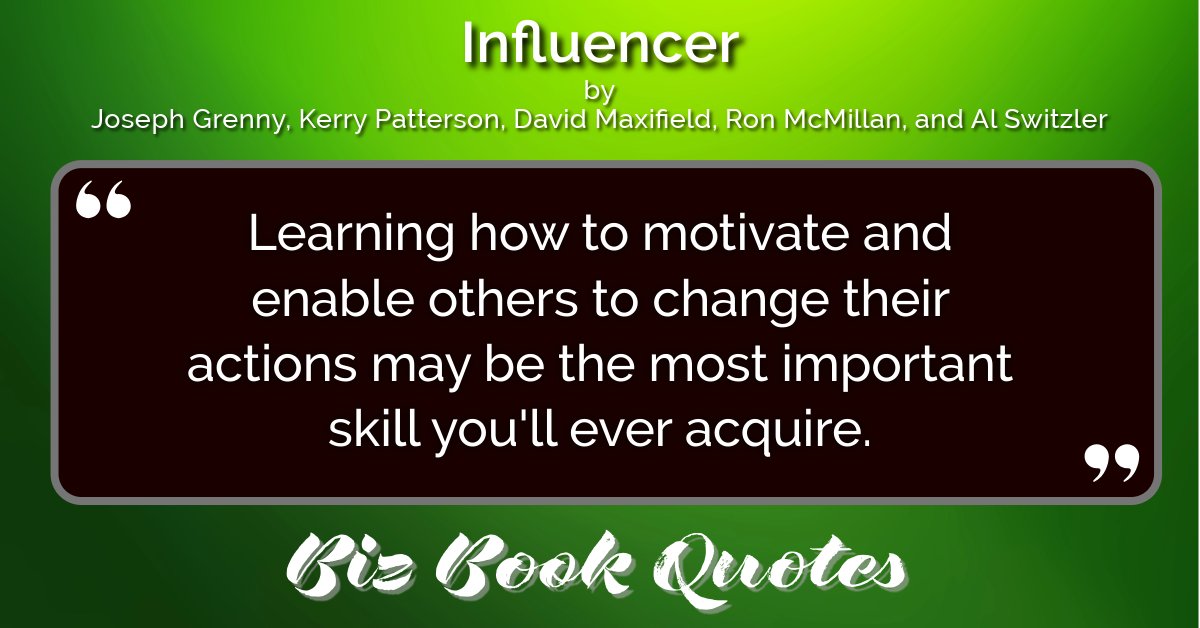 |
Learning how to motivate and enable others to change their actions may be the most important skill you’ll ever acquire.
|
008 |
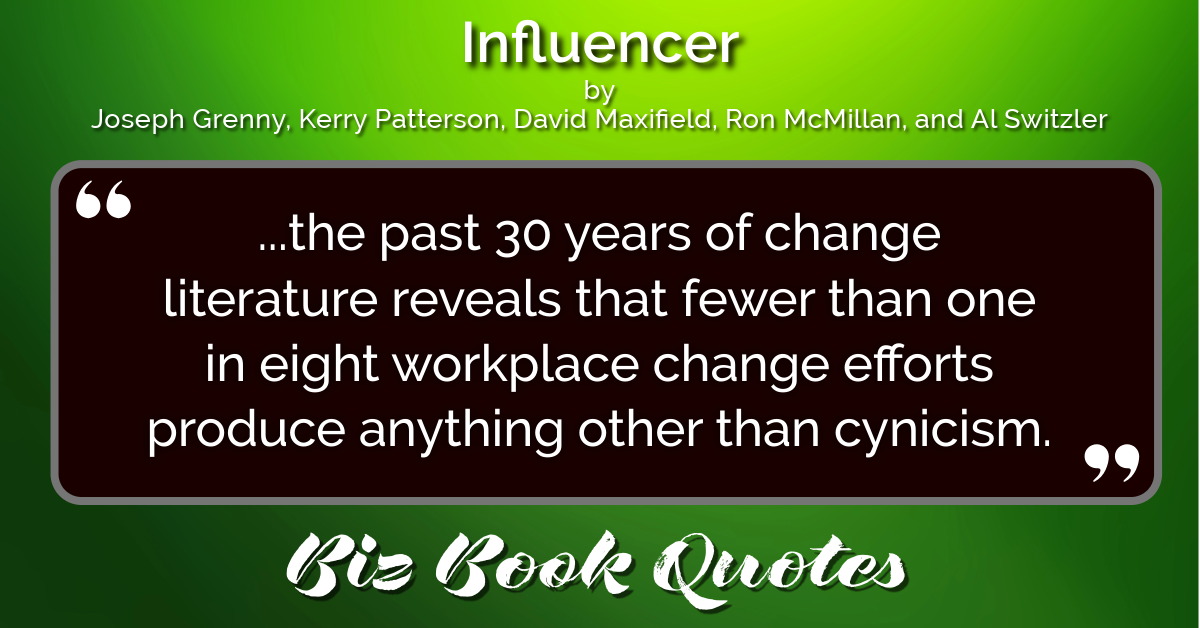 |
…the past 30 years of change literature reveals that fewer than one in eight workplace change effort produce anything other than cynicism.
|
009 |
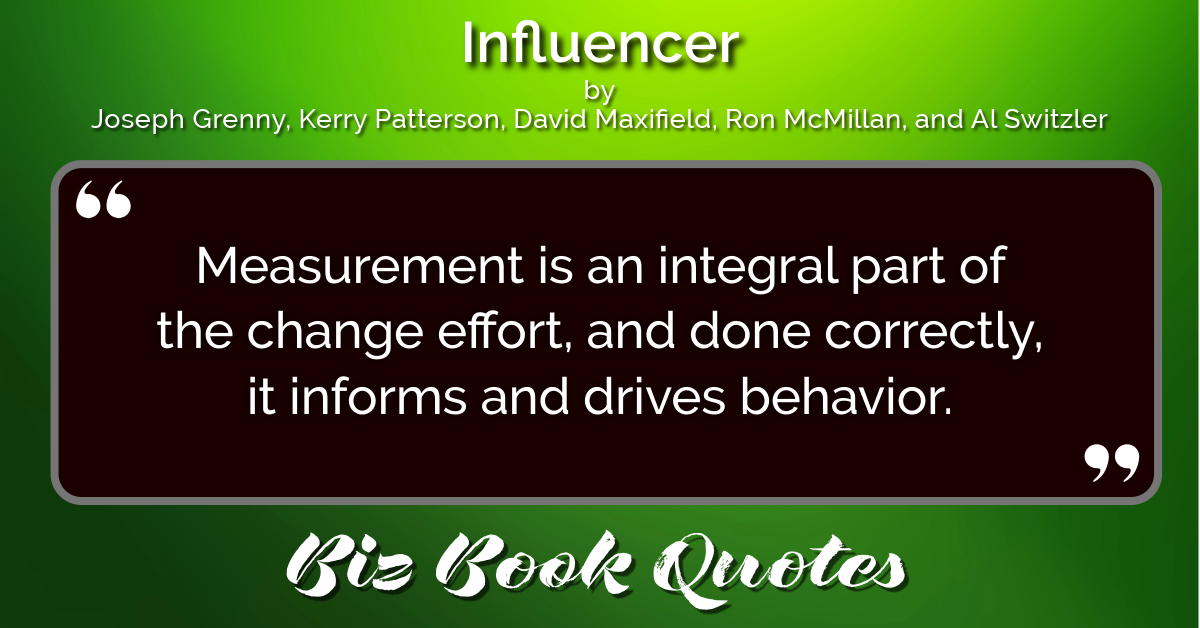 |
Measurement is an integral part of the change effort, and done correctly, it informs and drives behavior.
|
023 |
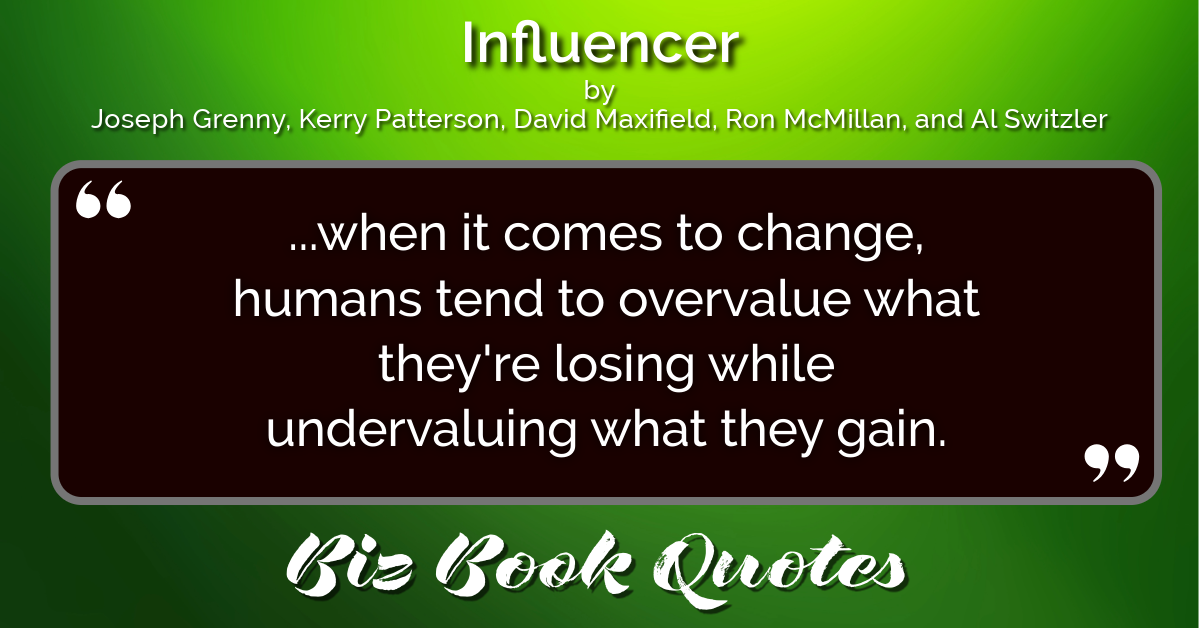 |
…when it comes to change, humans tend to overvalue what they’re losing while undervaluing what they gain.
|
094 |